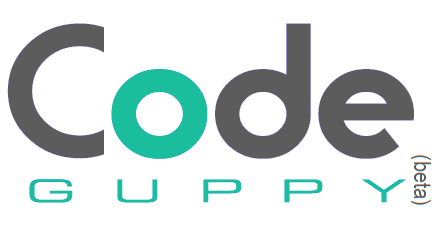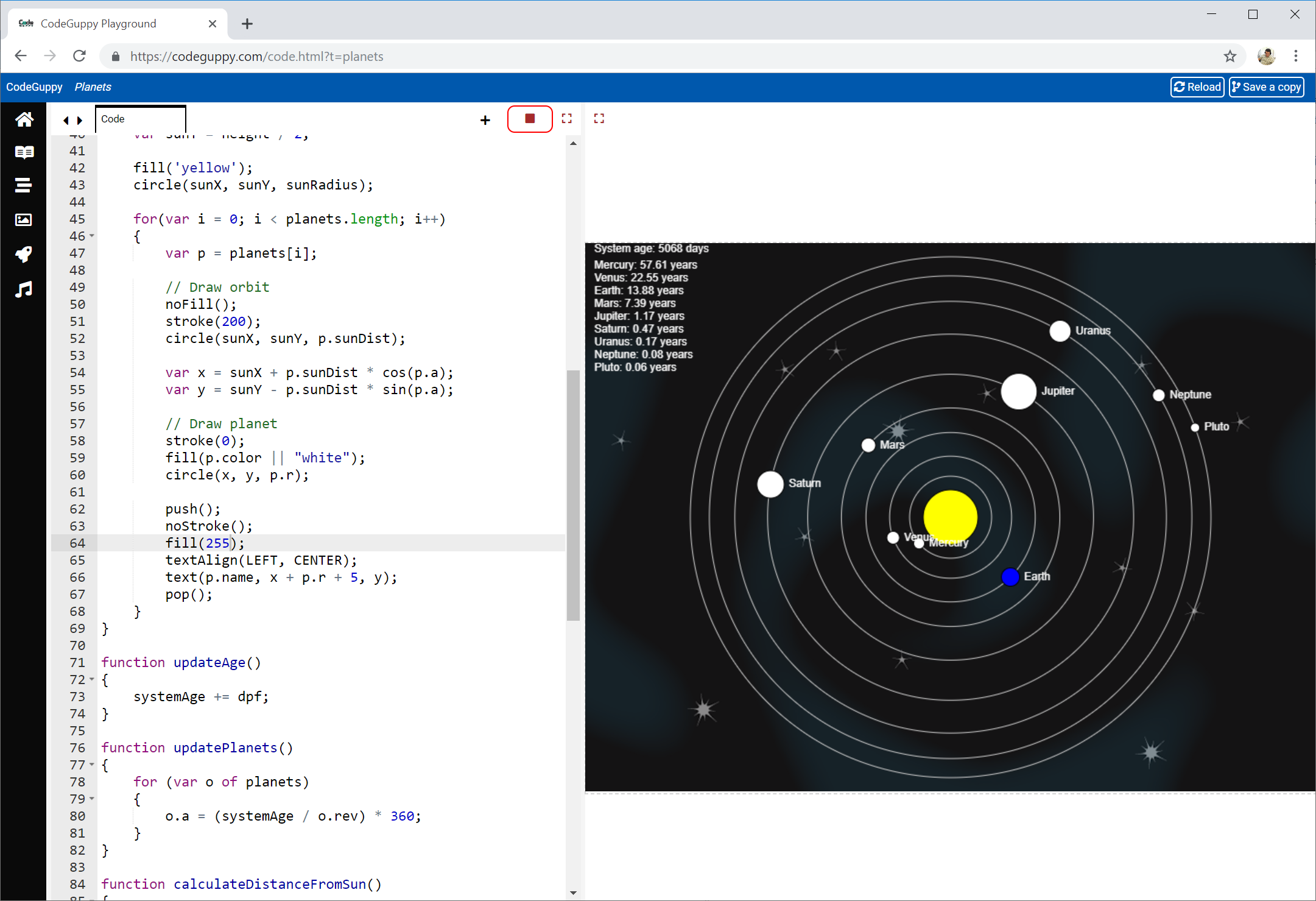7 Educational Tools That You Can Code Yourself in JavaScript
CodeGuppy is a dynamic coding platform tailored for coding education in the classroom or coding clubs. Leveraging the power of the p5.js library — with some thoughtful modifications — CodeGuppy makes coding accessible, fun, and educational. Here, we explore seven educational tools that you can code yourself using JavaScript on the CodeGuppy platform. Each project is offering a unique learning opportunity in mathematics, science, and computer science fundamentals.
1. Prime Number Generator
Understanding prime numbers is foundational in mathematics and computer science. By coding a prime number generator, students can explore algorithms that identify prime numbers within a specified range. Check out our version below and see the algorithm we use to determine if a number is prime.
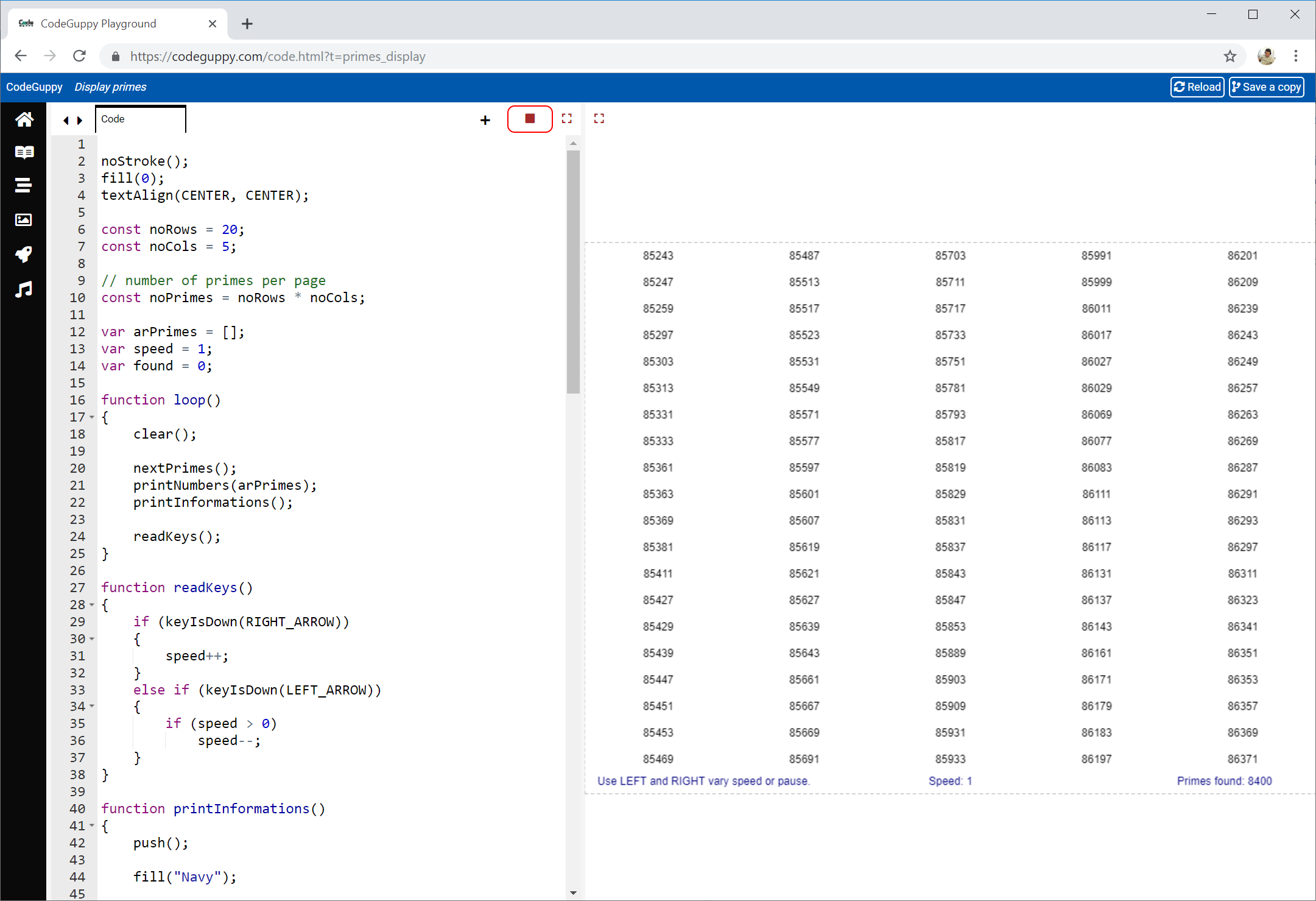 CodeGuppy Prime Number Generator Tutorial
CodeGuppy Prime Number Generator Tutorial
2. Fibonacci Numbers
The Fibonacci sequence, a series where the next number is found by adding up the two numbers before it, is more than just an arithmetic curiosity—it appears in biological settings and is a classic example in recursive programming. Coding a Fibonacci number generator helps students grasp recursion and sequence generation, illuminating the beauty of mathematics in nature.
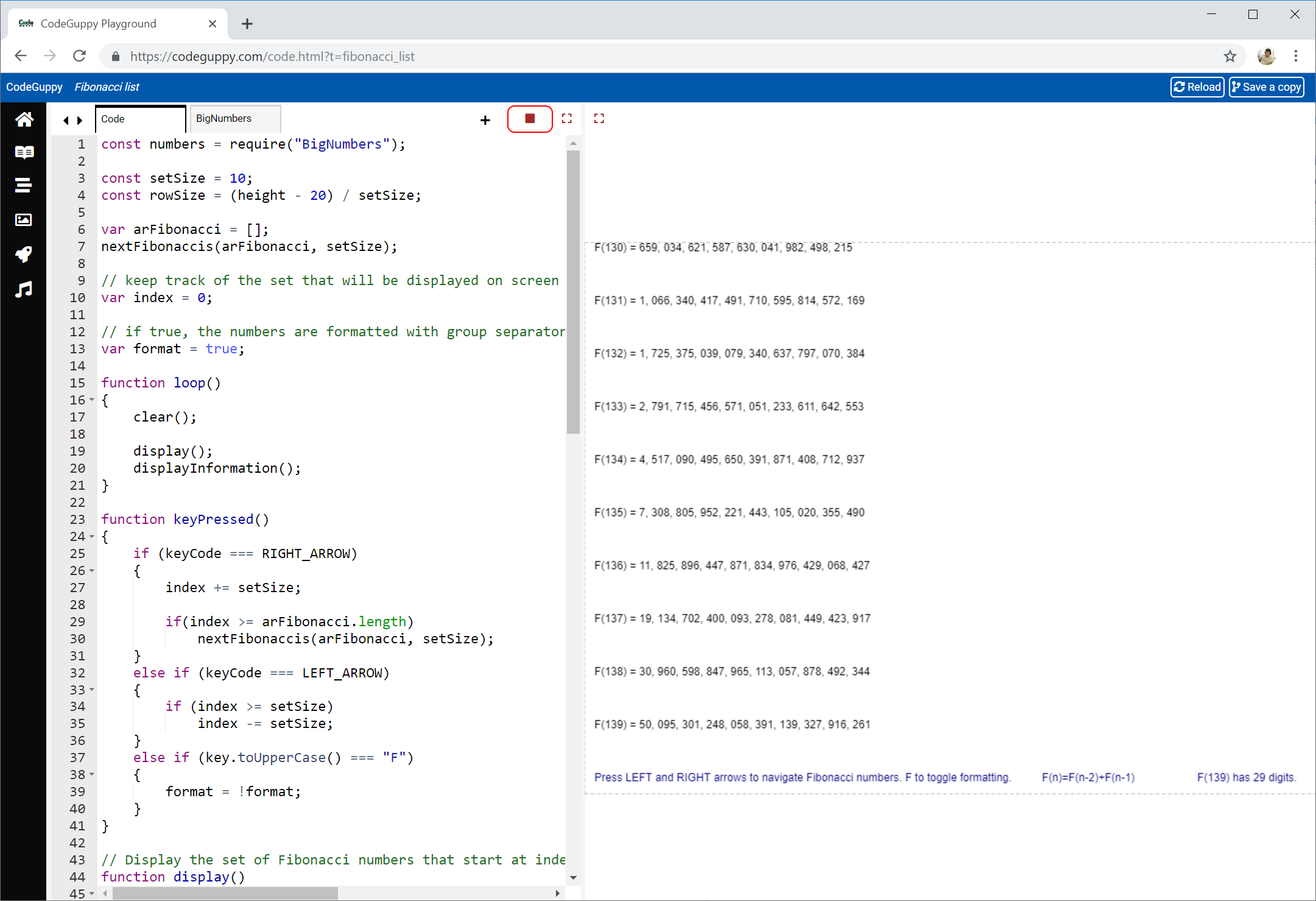 CodeGuppy Fibonacci Numbers Generator Tutorial
CodeGuppy Fibonacci Numbers Generator Tutorial
3. Graph a Math Function
Visualizing mathematical functions is important for understanding their behavior. By coding a tool to graph math functions, students can input equations and see their graphical representations. This project not only solidifies an understanding of coordinate geometry but also introduces students to the complexities of computer graphics programming.
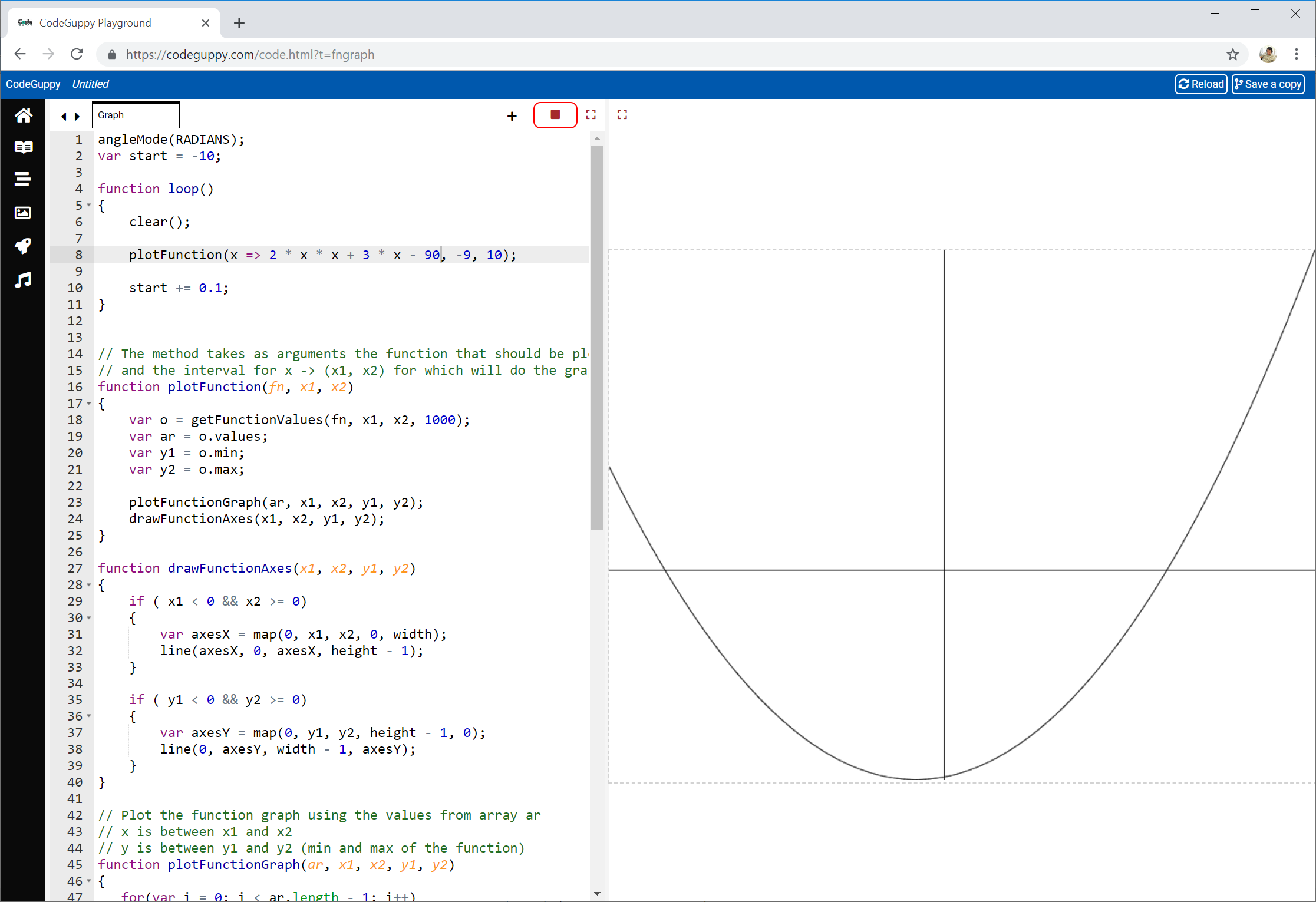 CodeGuppy Graph a Math Function Tutorial
CodeGuppy Graph a Math Function Tutorial
4. Equation Generator
An equation generator can be an invaluable tool for students to practice solving various mathematical problems. This tool can randomly generate equations within defined parameters, offering endless practice material.
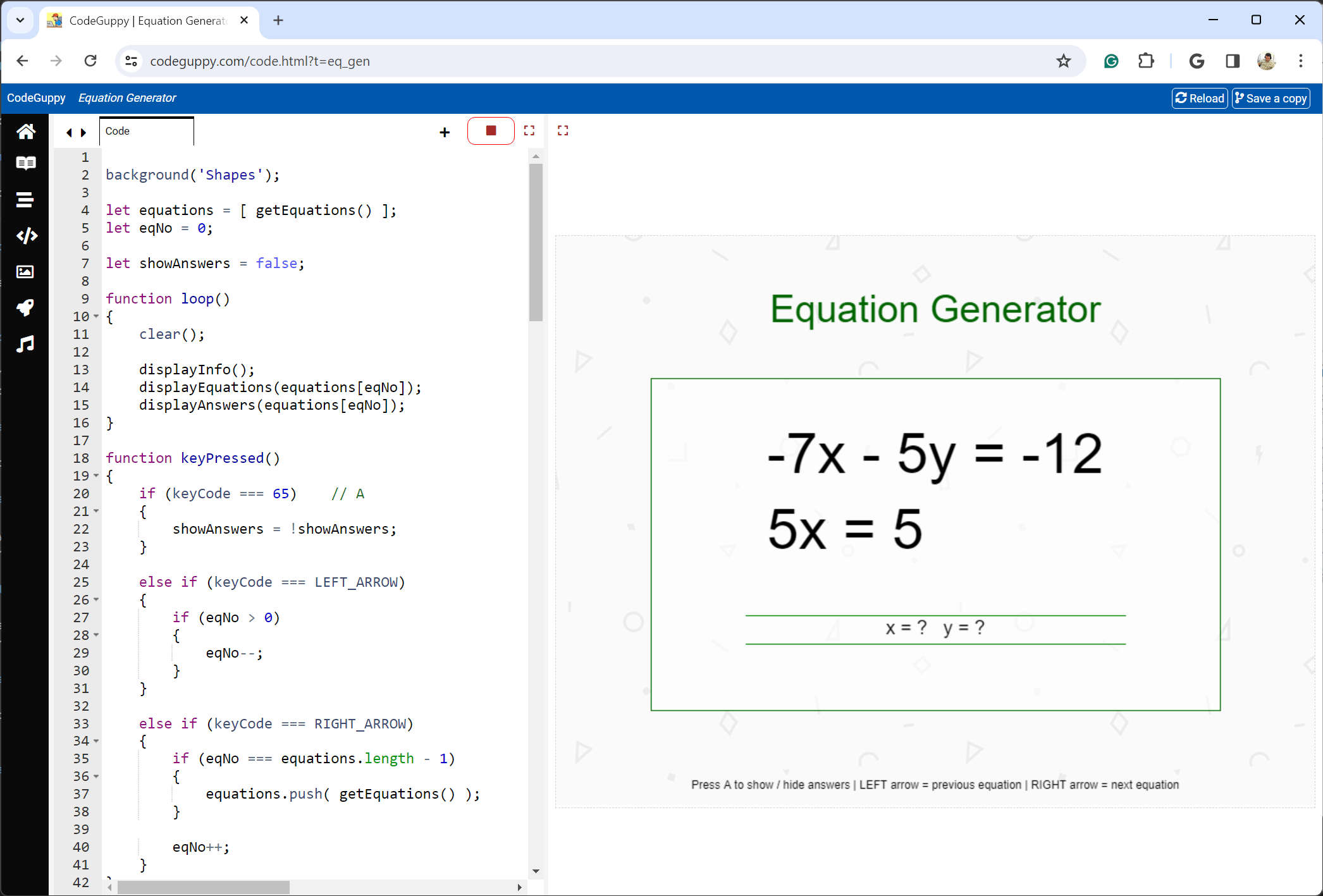 CodeGuppy Equation Generator Tutorial
CodeGuppy Equation Generator Tutorial
5. Solar System Simulator
A solar system simulator is a captivating project that combines physics, astronomy, and programming. By simulating the motion of planets, students can learn about orbital mechanics, the laws of motion, and how to model these using programming. This project not only teaches scientific concepts but also how to translate theoretical models into visual simulations.
6. Unit Converter
Building a unit converter teaches students about different measurement systems and the importance of precision in science and daily life. By coding a tool that converts between units like length, weight, and temperature, students practice applying mathematical conversion formulas and learn about user interface design, making their programs user-friendly.
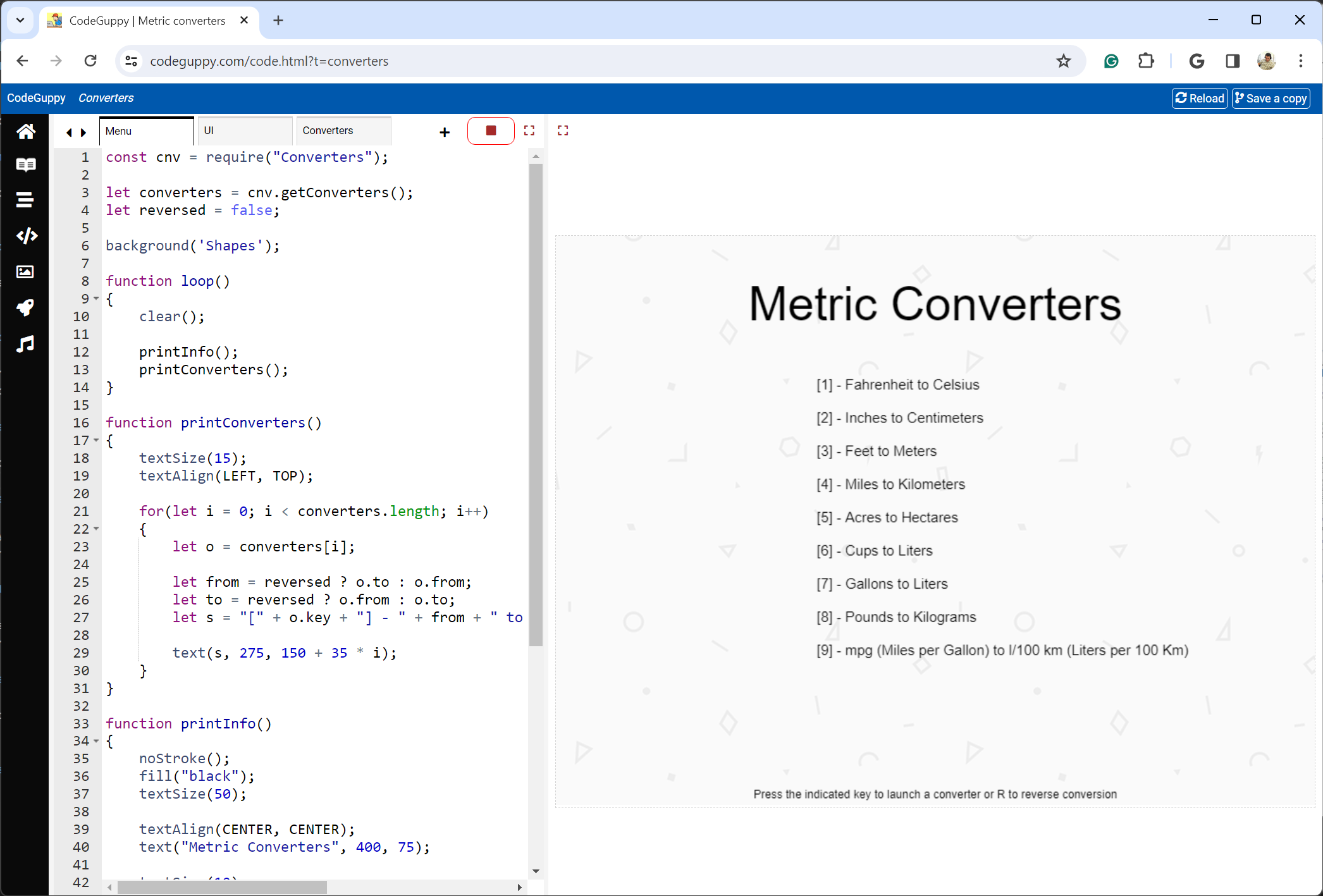 CodeGuppy Unit Converts Tutorial
CodeGuppy Unit Converts Tutorial
7. Binary-Decimal-Hexadecimal Converter
Understanding different number systems is fundamental in computer science. A binary-decimal-hexadecimal converter tool helps demystify how computers represent and process data. This project strengthens students' understanding of base systems and offers practical insights into computer architecture.
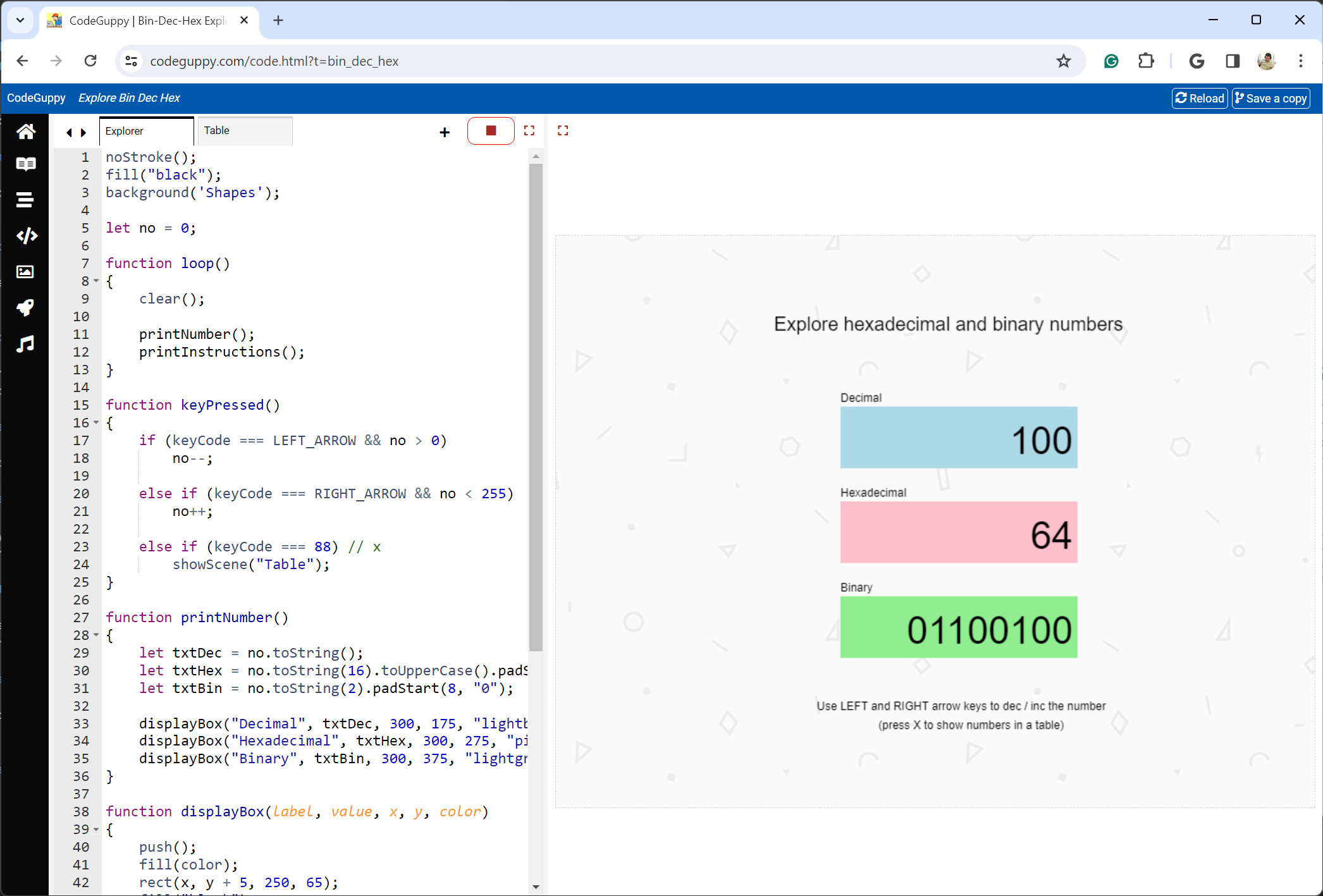 CodeGuppy Bin-Dec-Hex Tutorial
CodeGuppy Bin-Dec-Hex Tutorial
Conclusion
CodeGuppy provides an ideal platform for CS teachers and students to engage deeply with programming through meaningful educational projects.
Read more blog articles Browse JavaScript projectsAbout codeguppy
CodeGuppy is a FREE coding platform for schools and independent learners. If you don't have yet an account with codeguppy.com, you can start by visiting the registration page and sign-up for a free account. Registered users can access tons of fun projects!

Follow @codeguppy on Twitter for coding tips and news about codeguppy platform. For more information, please feel free to contact us.
